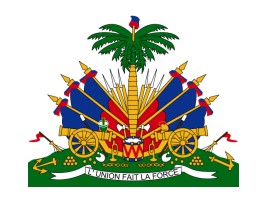|
||||||||||||||||||
|
|
Haiti - Health : The Haitian authorities recognize some mistakes, but... 14/06/2013 10:22:18
In 2008, of case of another type of influenza A / H5N2 (avian influenza), which is transmitted from poultry to poultry (and not to the man), was discovered in the Dominican Republic. The Haitian government had declared, on this occasion, a ban on imports of poultry products that has never been lifted... So with respect to poultry products, the press release of last week only reaffirmed a ban already in force [!] Last week, at the announcement of this flu in the Dominican Republic, there was doubt about the type of virus in question. Today, the authorities of both countries can say that Haitian consumers and Dominicans consumers, they can all safely consumed eggs or poultry meat, that these eggs or that meat are produced in Haiti or in the Dominican Republic, if they are transported, stored and sold in hygienic conditions. That said, the Haitian authorities consider that there is always a risk of contaminatio of Haitian poultry by the H5N2 avian influenza virus discovered in 2008 in the neighboring country, which is a danger to national poultry production. What interests first and foremost the Dominican Republic, it was learned, is the lifting of the ban on exports of eggs to Haiti. Everything else is secondary. Recall that the Dominican Republic exports more than one million eggs per day in the Haitian market, which represents 20% of production and a turnover of at least 4 million gourdes per day, or 36 million U.S. dollars annually. Essentially, the Haitian market is a market for seasonal surpluses and in majority of eggs "no fresh", of second class, from the Dominican Republic. Despite the interest of Dominicans to esume exports, Haiti must also protect its interests, say Haitian authorities, which are : 1. Protect the health of the Haitian population (as against the H1N1 virus as against consumer products of poor quality); 2. Protecting Haitian animal livestock against new diseases; 3. Create competitive conditions for the development of domestic production and the creation of jobs for income generation (against dumping and smuggling). Haitian technicians say that if the Dominican Republic claims to be free of the H5N2 avian influenza, it would be possible to consider the lifting of the ban on poultry products. But according to the position of the Haitian authorities, expressed in a joint statement, the lifting of the ban will be subject to a preliminary technical assessment, which should be achieved by the health authority and following a specific protocol recognized by international bodies. Based on the results, Haiti could decide on a total or partial lifting of bans poultry products as requested by the neighboring Republic. Without this assessment, the Haitian government can not lift the ban, say experts from the Ministry of Agriculture. "It is only under these conditions that the health services in Haiti could issue import permits for lots of products free of all diseases, from companies which have been certified by the Dominican health authorities and the permits would be subject to strict traceability and conditions of transport and storage to meet internationally recognized standards of quality," says specify sources close to the Haitian government. Haitian officials insist on the fact that the ban on Dominican products is not a form of trade war, but it is strictly of measures sanitary. For cons, the Haitian government is demonstrating for some time, its intention to develop the national poultry production. Haitian officials say that the Dominican Republic should consider Haiti as a business partner and not just as a market for its surplus production. According to the figures developed by the authorities in Haiti for two years, there have been significant investments in the poultry sector [nearly 10 million U.S. dollars]. New plants for food cattle were born, as well as industrial hatcheries with large production capacity of chicks (three national companies totaling over 558,000 chicks per month) and a new modern slaughterhouse came into operation. Production of broilers and eggs has more than doubled in Haiti, from 100.000 to 225.000 broilers per month and 1 million to 2 million eggs per month. In consultation with key national stakeholders interested in the development of the sector, the Ministry of Agriculture has set up a proposal for a national project to consolidate these achievements and to support an sustained development of the poultry sector. This proposal is focused mainly on access to credit, which should allow domestic firms to recover in the next three years from 30 to 40% of the market. In this proposal, all aspects are covered, ranging from the regulation and pricing policy for imports, to the public / private partnerships essential to the development of the sector and the national interest. The development of employment and wealth creation in Haiti are in the interests of both peoples. Officials from both countries need to ensure a balanced development of both nations by fighting against all forms of dumping. In this sense, the Haitian authorities say they are also ready to encourage Dominicans investment in Haiti to support the development of national poultry production. In addition, the Ministry of Health explained "We never talked about bird flu in the Dominican Republic" recognizing an error in the press release of Thursday from the Ministry of Commerce and Industry "This is the drafting that had misinterpreted, believing that the MSPP had referred to avian influenza. To tell you honestly, this is a misinterpretation that is acceptable." See also : https://www.haitilibre.com/en/news-8780-haiti-health-the-dominican-republic-awaiting-the-decision-of-the-government-of-haiti.html https://www.haitilibre.com/en/news-8772-haiti-health-towards-a-solution-to-the-ban-imports-of-dominican-products.html https://www.haitilibre.com/en/news-8767-haiti-health-tense-situation-between-the-dominican-republic-and-haiti.html https://www.haitilibre.com/en/news-8751-haiti-health-apn-on-high-alert.html https://www.haitilibre.com/en/news-8747-haiti-health-import-ban-a-serious-misunderstanding.html https://www.haitilibre.com/en/news-8735-haiti-notice-import-ban-on-poultry-eggs-and-live-animals-from-dominican-republic.html HL/ HaitiLibre
|
|
|
Why HaitiLibre ? |
Contact us |
Français
Copyright © 2010 - 2024 Haitilibre.com |



